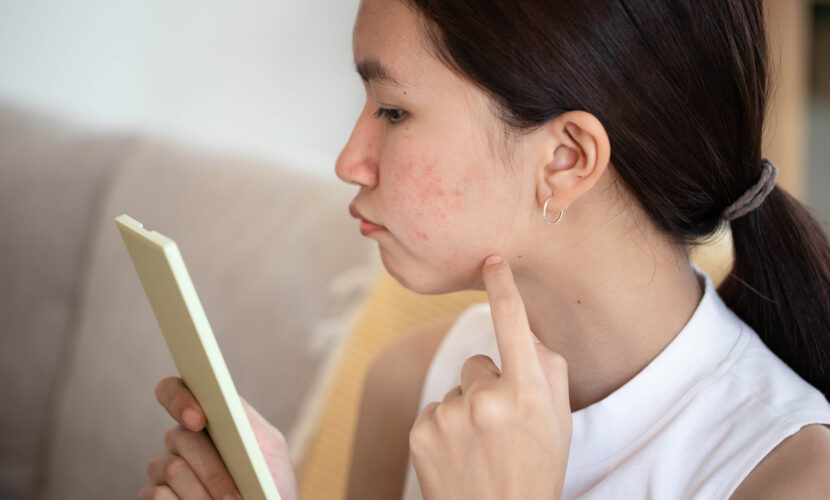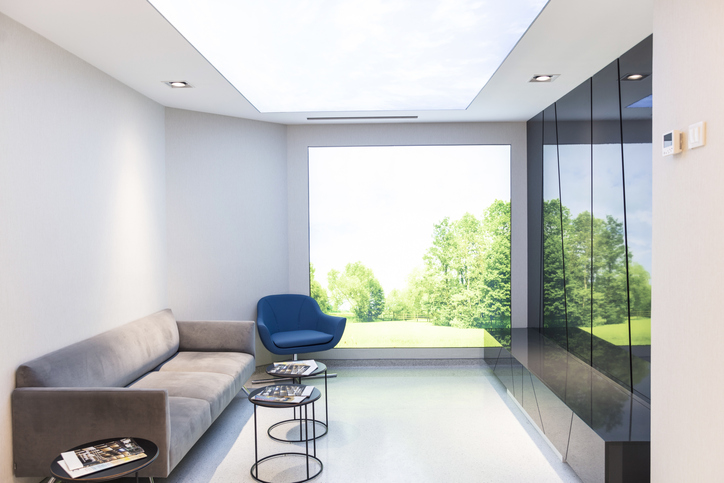Beautiful skin means more than just appearance. It is a symbol of confidence and health and plays an important role in our daily lives. However, it is not uncommon for acne scars to interfere with this ideal.
Here, we will discuss in depth the most advanced methods and effective skin care to heal acne scars from the root. We hope it will help you bring your skin to a healthy and radiant state. Free yourself from the worries of acne scars and grow a new confidence.

Graduated from the Faculty of Medicine, National Kumamoto University. After serving as the director of major beauty clinics in Japan, etc., he opened Aladdin Aesthetic Clinic in 2023. He is a professional in aesthetic medicine with a doctorate in anti-aging research and many years of experience. With the motto of "Toward the realization of cosmetic medicine without lies," he aims to be the "Only One" together with his patients.
Acne Scars by Type! Causes and Characteristics

Acne scars are the various changes that remain after inflammation of the skin has healed. These scars are divided into three main types. Each type is formed by different causes and requires specific treatments.
Redness|Result of acute inflammation
Acne scars with redness, known as "post-inflammatory erythema," are caused by the temporary dilation of blood vessels caused by acne inflammation. This condition appears as a reddening of the skin and is especially noticeable in fair-skinned individuals.
For treatment, skin care products containing ingredients that reduce inflammation are effective. Persistent redness can also be effectively treated with light therapy or laser therapy, both of which constrict blood vessels and reduce redness. In addition, the appropriate use of topical steroids with anti-inflammatory properties can also be effective, but should be performed by a dermatologist or other medical professional.
Pigmentation|Accumulation of melanin
Post-inflammatory hyperpigmentation are dark patches that remain on the skin after acne scars have healed. This is due to excessive accumulation of melanin pigmentation and is particularly common in people with darker skin tones. For treatment, topical products containing ingredients that inhibit melanin production (e.g., hydroquinone, arbutin, and kojic acid) are effective.
Products containing vitamin C and retinoids can also help reduce hyperpigmentation. In severe cases, chemical peels or laser treatments by a clinic are recommended.
Crater|Serious tissue damage
Cratering acne scars are atrophic scars resulting from severe skin tissue damage. They have an uneven skin surface and a dented or pitted appearance. Treatment is relatively difficult and common methods include laser therapy, micro-needling, or subcision (surgery to remove scar tissue).
These treatments are intended to remove or alleviate scar tissue and improve consistency with the surrounding healthy tissue. Filler therapies using hyaluronic acid or fat are also effective; these lift the indented areas and create a smoother skin surface.
Effective treatment for common acne scars

As mentioned earlier, treatment of acne scars depends on their type and severity. Modern dermatology has introduced a variety of advanced treatments, allowing for individualized treatment plans tailored to the specific characteristics of each acne scar. Below, effective treatment options are discussed in detail.
Dermatology Treatment
Dermatologic treatment is individualized based on the type and severity of acne scars. Common treatments include topical creams (retinoids, hydroquinone, etc.), antibiotics, steroid injections, and even hormone therapy.
These treatments are particularly effective for mild to moderate acne scars and promote skin regeneration and decrease inflammation. Recently, new topical products containing ingredients such as vitamin A acid and alpha hydroxy acid have been developed to help improve acne scars.
Which is appropriate in the end, laser treatment or chemical peelings?
Laser treatments and chemical peels are particularly effective for moderate to severe acne scars. Accurate diagnosis by a specialized physician and proper aftercare are essential for these treatments.
Laser therapy improves hyperpigmentation and cratering marks by microscopically exfoliating the superficial layers of the skin and stimulating the growth of new skin cells. Various types of lasers (fractional lasers, CO2 lasers, etc.) are available, each with its own specific effects and recovery time.
Chemical peels use chemicals such as alpha hydroxy acids (AHA), beta hydroxy acids (BHA), and trichloroacetic acid (TCA) to exfoliate dead skin layers and promote new skin growth. The depth of the peel is adjusted according to the severity and type of acne scars and is particularly effective in improving pigmentation and fine lines.
What over-the-counter medications can do
When treating acne scars with over-the-counter medications, product selection is critical. Choosing a product that contains ingredients effective for acne scars is key. Below are some of the main ingredients and their benefits for acne scars.
| component | efficacy | usage method |
|---|---|---|
| salicylic acid | Removes dead skin cells and unclogs pores. Improves the appearance of acne scars. | Effective for mild acne scars. Excessive use may cause skin dryness. |
| Nicotinamide (Niacinamide) | Strengthens the skin's barrier function and reduces skin redness and pigmentation. | It is included in everyday skin care products and shows effects with long-term use. |
| hydroquinone | Effect on reducing pigmentation. | Effective for acne scars with significant pigmentation. Recommended for short-term use due to strong skin irritation. |
| Alpha hydroxy acid (AHA) | Smoothes skin surface and reduces pigmentation. | With regular use, improvement in skin texture can be expected. |
When using over-the-counter medications, it is important to choose a product that is appropriate for your skin type and acne scars. It is also important to discontinue use if a hypersensitivity reaction or irritation develops and to seek professional medical advice whenever possible. It is important to understand that the treatment of acne scars takes time and requires perseverance.
Safe and effective solution for young adults in middle school and beyond

Middle school students and young adults often suffer from acne and acne scars due to hormonal imbalance and lifestyle fluctuations.
Skin in this age group is sensitive and requires proper skin care. Here are some acne scar solutions that are gentle on young skin.
Solution 1|Gentle face wash
For middle school students and young adults, the use of gentle skin cleansers is recommended. Products that are non-irritating, fragrance-free, and color-free are ideal. Excessive cleansing should be avoided to protect the skin's natural oils.
Excessive washing can deprive the skin of sebum, dry it out, and worsen acne inflammation. Washing the face once or twice a day is appropriate, and it is important to treat the skin gently.
Solution 2|The Importance of Moisturizing
Moisturizers are essential in the care of acne scars. Moisturizers help maintain the skin's moisture balance and strengthen the skin's barrier function.
Moisturizers containing ingredients such as aloe vera, hyaluronic acid, and glycerin can help soothe skin and inhibit inflammation. Young skin, in particular, can easily dry out if not moisturized, which can result in worsening acne symptoms.
Solution 3|Prevent sunburn
Sun exposure can cause hyperpigmentation of acne scars and worsen the appearance of existing acne scars. The use of sunscreen is also important for young adults.
It is recommended that sunscreen with an SPF of 30 or higher be selected and applied 30 minutes before going outside. Proper UV protection is essential, as UV rays can delay the healing process of acne scars and exacerbate inflammation.
Solution 4|Spot treatment
For mild acne, spot treatments containing ingredients such as salicylic acid and benzoyl peroxide are effective. These ingredients are effective in reducing inflammation and unclogging pores.
However, these ingredients can dry out the skin, so it is important to be careful about the amount and frequency of use and to monitor the skin's response.
Solution 5|Balanced diet and adequate sleep
A balanced diet and adequate sleep are essential for maintaining healthy skin. A nutritious diet and adequate water intake support skin health.
Actively incorporating fruits and vegetables rich in vitamins and minerals and getting a good night's sleep will reduce stress and promote the skin's natural repair process.
What can you do at home to take care of your skin? Make a difference with your daily routine!

Skin care at home is very important in the management of acne scars. Proper measures and a nutritionally balanced diet support skin health from the inside out. Here we detail the key points for effective skin care.
Stress and acne
Stress affects the hormonal balance and has a direct impact on the condition of the skin. When stress increases, the body releases a stress hormone called cortisol. Increased cortisol can stimulate the sebaceous glands, causing excessive sebum production. This can clog the pores and result in acne.
Stress management is essential for improving acne. Relaxation techniques, regular exercise, adequate sleep, and the incorporation of hobbies and relaxation activities can help decrease stress levels. Psychological support and counseling, if needed, can also be helpful.
Relationship between exercise and acne
Exercise promotes blood flow throughout the body and has a positive effect on skin health. Moderate exercise can reduce stress and normalize sebaceous gland activity. However, sweat and friction after exercise can aggravate acne.
After exercise, it is important to keep the skin clean. It is important to wash off sweat and dirt immediately after exercise and keep the skin gently clean. In addition, choosing breathable clothing can minimize irritation to the skin caused by perspiration.
Care from the Inside Out! Relationship between diet and skin
Skin health is also greatly influenced by diet. Balanced nutrition supports skin repair and renewal and improves the appearance of acne scars. Foods rich in omega-3 fatty acids (e.g., salmon, chia seeds, walnuts) in particular help reduce inflammation and maintain skin health.
Antioxidant-rich fruits and vegetables (such as berries, squash, and green vegetables) can help protect the skin from free radicals and maintain a youthful appearance.
Foods rich in vitamins C and E (oranges, almonds, spinach, etc.) support collagen production in the skin and contribute to the improvement of acne scars. By actively consuming foods containing these nutrients, skin becomes healthier from the inside out and improves its appearance.
summary
The struggle with acne scars is not only a change in appearance, but also a journey toward inner growth and self-acceptance. From optimal skin care measures to daily dietary habits, it is best to try to take care of your lifestyle.
Treatment of acne scars is not accomplished overnight, but with proper knowledge and ongoing care, you can achieve the skin you desire. Everyone's skin is different and has its own beauty. Love and care for your own skin.
At Aladdin Aesthetic Clinic, based on our many years of experience in cosmetic medicine and cosmetic dermatology and the knowledge of our doctoral degree, we provide counseling that aims to be "only one", offering the best treatment for each person we meet. We offer only the necessary treatments without any unnecessary information or suggestions.
Feel free to use our official LINE account for 24-hour counseling and reservations. Please feel free to contact us for free counseling for the first time or if you have any concerns.





